Uncategorized
-
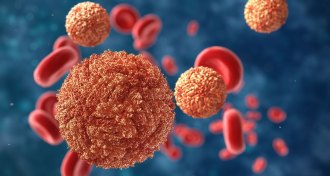 Genetics
GeneticsThe Zika epidemic began long before anyone noticed
Zika spread undetected into Brazil and Florida, a genetic study suggests.
By Laura Beil -
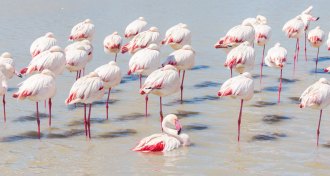 Life
LifeHow a flamingo balances on one leg
Flamingos’ built-in tricks for balance might have a thing or two to teach standing robots or prosthesis makers someday.
By Susan Milius -
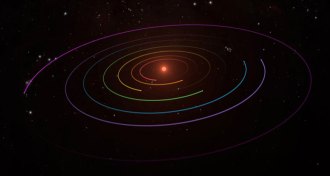 Planetary Science
Planetary ScienceTRAPPIST-1’s seventh planet is a chilly world
Follow-up observations of TRAPPIST-1 and its seven planets reveals details about the outermost one.
-
 Archaeology
ArchaeologyTool sharpens focus on Stone Age networking in the Middle East
Stone Age tool’s route to Syrian site covered at least 700 kilometers.
By Bruce Bower -
 Life
LifeMouse sperm survive space to fertilize eggs
Sperm freeze-dried and sent into space for months of exposure to high levels of solar radiation later produced healthy baby mice.
-
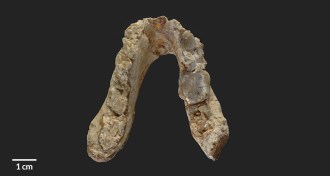 Anthropology
AnthropologyEuropean fossils may belong to earliest known hominid
With new analyses of Graecopithecus fossils from Greece and Bulgaria, researchers argue for possible hominid origins in Europe, not Africa.
By Bruce Bower -
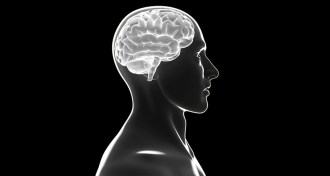 Health & Medicine
Health & Medicine40 more ‘intelligence’ genes found
A study of nearly 80,000 people turns up 40 genes that may have a role in making brains smarter.
-
 Health & Medicine
Health & MedicineEven short-term opioid use can set people up for addiction risks
A study of opioid prescriptions for sprained ankles finds that patients prescribed 30 or more pills are more likely to seek refills.
By Laura Beil -
 Quantum Physics
Quantum PhysicsQuantum tractor beam could tug atoms, molecules
The wavelike behavior of quantum particles could be harnessed to move atoms.
-
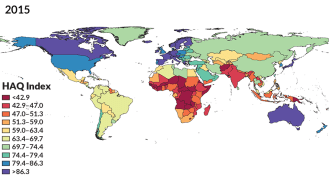 Health & Medicine
Health & MedicineGlobal access to quality health care has improved in the last two decades
Health care quality and availability improved worldwide from 1990 to 2015, but the gap between countries with the lowest and highest levels of care widened.
-
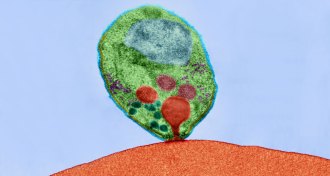 Genetics
GeneticsHybrid protein offers malaria protection
Rare hybrid protein that spans red blood cell membranes offers some protection against malaria.
-
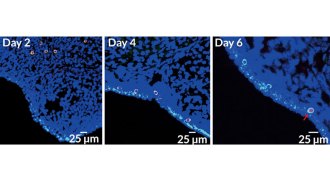 Health & Medicine
Health & MedicineTransplanted stem cells become eggs in sterile mice
Sterile mice that received transplanted egg-making stem cells were able to have healthy babies.